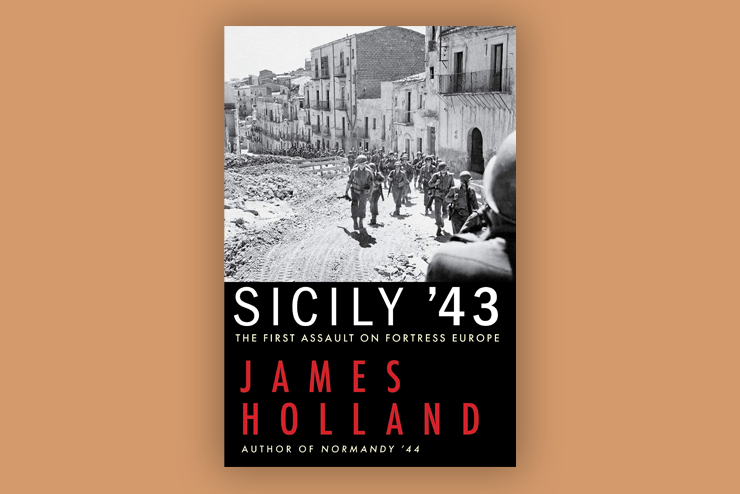Sicily ’43: The First Assault on Fortress Europe, by James Holland (Atlantic Monthly Press; 599 pp., $30.00). By 1943, Hitler, given to paranoia and dreading loss of his North African outpost, had become obsessed with territory north of the Mediterranean out of concern that the Allies would gain a foothold in Sicily. With little confidence in Mussolini’s army, he grew determined to reinforce the Italian peninsula, even at the cost of pulling troops and matériel from the Eastern Front.
Malta was already in Allied hands; Sicily was the obvious next step, being more manageable and a bigger prize than Sardinia. But why did the Allies not sideline the whole area? Why not put their energies into the crucial cross-Channel invasion, already planned? The British argued that by continuing Mediterranean operations, the Allies would hasten Italy’s exit from the war, possibly prompting Turkey to join them. The Americans agreed, in part because large forces were already amassed in North Africa. And, despite frantic efforts at a naval buildup, the resources required for the D-Day invasion were incomplete.
In this worm’s-eye view of the Sicilian campaign, Holland insists on the importance of geography, topography, and other local conditions favoring the defender—heat, poverty, paucity of water, mosquitoes, bad or nonexistent roads, hills, ridges, narrow valleys , rocky formations, and villages like aeries. Dysentery disabled some troops; the numbers who fell victim to malaria surpassed those of the wounded or killed. Holland justifies this lengthy account by asserting that it has received meager coverage relative to its importance and its strategic lessons.
Holland’s narrative is well-organized. Thumbnail sketches of participants both Axis and Allied, some high-placed, provide an individual touch.
What is certainly annoying, however, is the book’s inferior language, connected, presumably, to his background in writing television documentaries. Apparently, he is not familiar with English subjunctives. Errors in sentence structure, verb agreement, and participle placement jump out. He misuses constantly the pluperfect tense, which must indicate action prior to that of the simple past. Colloquial barbarisms such as “a non-starter,” “dead cert,” “disorientating” are unacceptable. That World War II remains a popular topic does not justify their appearance in an otherwise-scholarly study. The publishers as well as Holland are at fault.

Leave a Reply